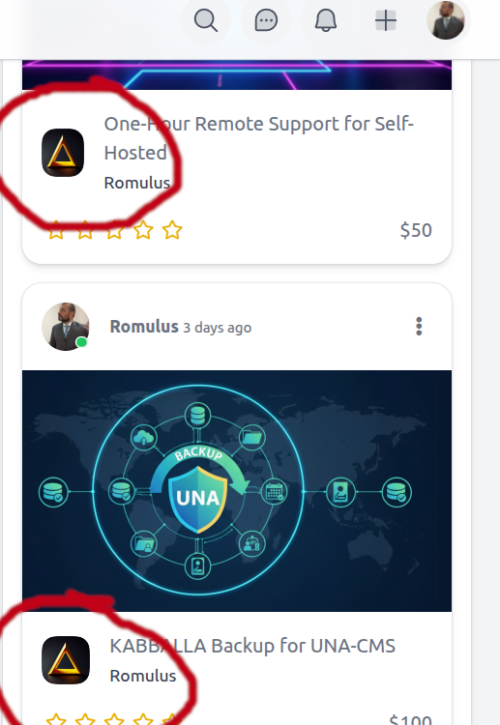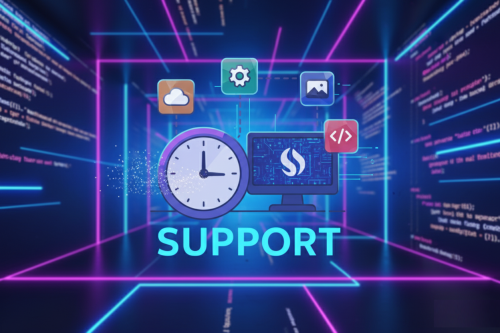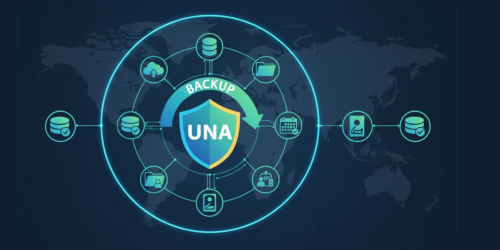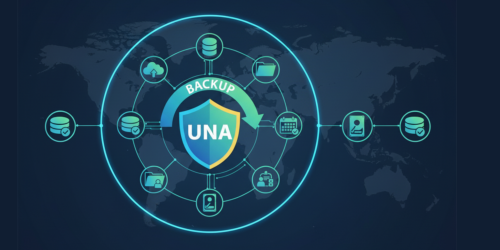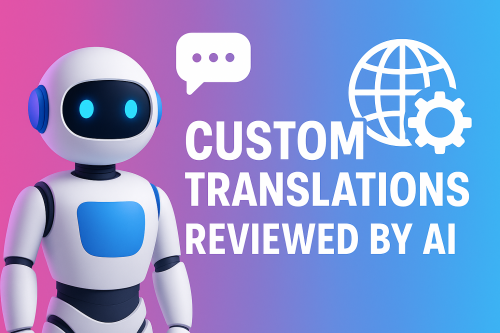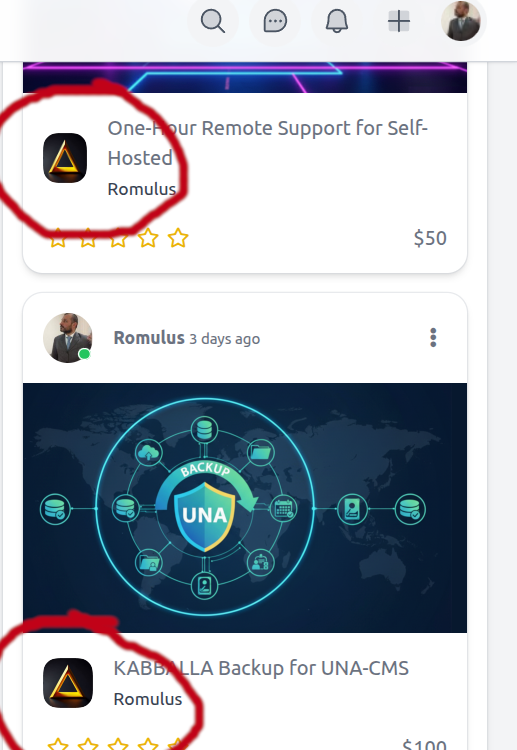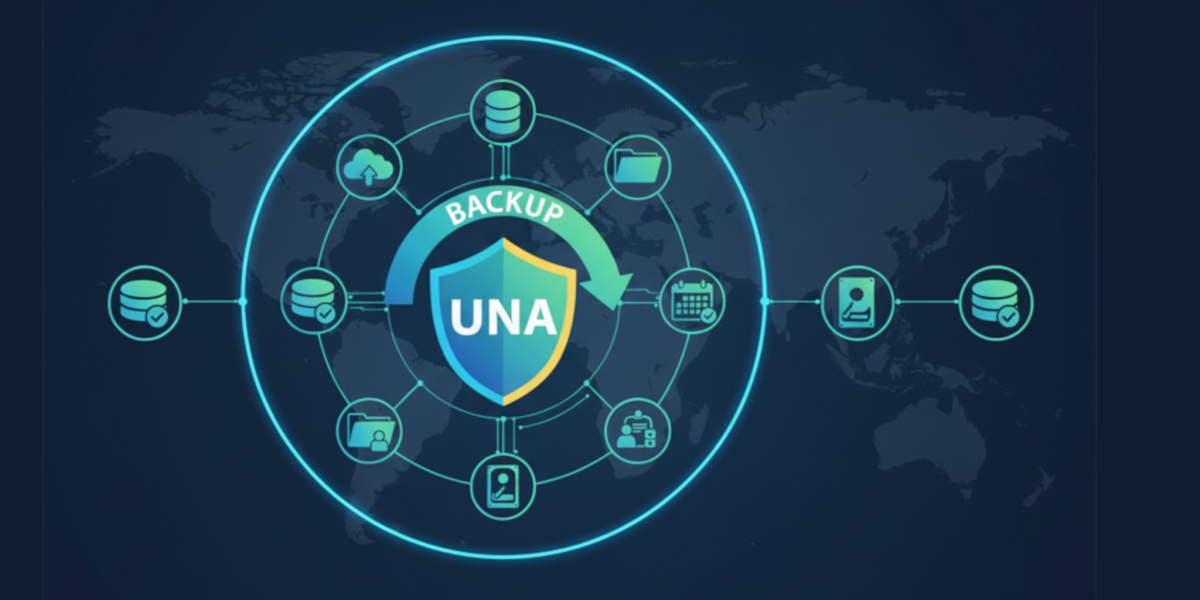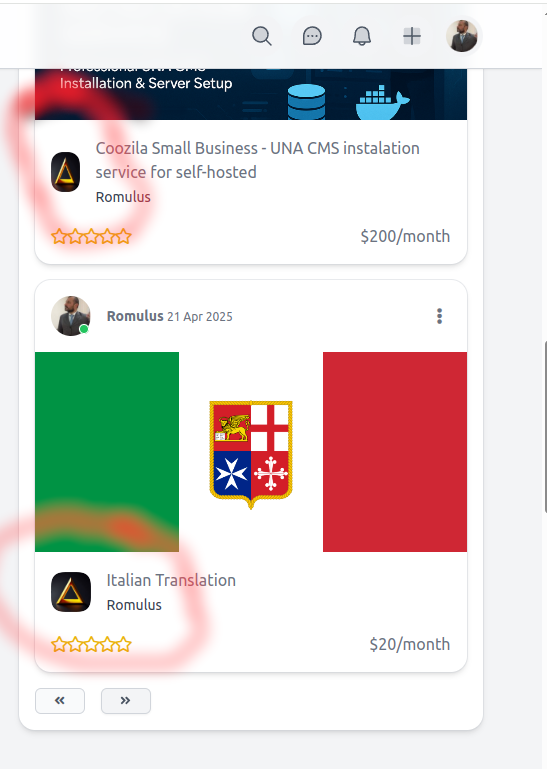On the UNA marketplace, the product icon disappears if the product is modified and the icon is automatically moved to “Files.” The icon is then replaced with a thumbnail from the header. I don’t understand why, when one update fixes something, the next update breaks it again. It’s always the same with every update: some issues are fixed while others are broken.
As a result, the icon has to be re-added after the text changes are saved because it is not preserved when anything is modified in the text editor.
Additionally, the icon is not displayed symmetrically. The first one appears distorted, while the second displays correctly. It seems that the CSS is also inconsistent.
A similar error i report a few months ago, but it seems to have worsened now: https://unacms.com/d/una-market-icons-keep-breaking-evolution
Service Overview
Need expert help with your self-hosted UNA CMS? Our one-hour remote support service allows you to get professional guidance on installation, configuration, or troubleshooting of your server all on a flexible, pay-per-hour basis.
Important: Clients must provide remote access to their server via SSH, including the IP address and a valid SSH key, and describe privately what they want done. This ensures a secure and efficient support session tailored to your needs.
What’s Included
- Installation and configuration of UNA CMS on your Linux server
- Setup and optimization of related services (Docker, Memcached, MySQL, PHP, Nginx, Backup, etc)
- Module configuration and troubleshooting
- Security and performance recommendations
- Personalized guidance based on your exact requirements
How It Works
- Purchase the service for one or more hours.
- Before paying, please contact us to confirm availability and ensure we can help with your specific need.
- Provide your SSH access (IP + key) securely, along with a description of what you need.
- Schedule your support session.
- Our expert connects to your server and assists you directly.
Pricing
- Hourly rate: 50$/hour
- Pay per session. Flexible and secure.
Why Choose This Service?
- Real-time, hands-on support from UNA CMS specialists
- Flexible hourly support only pay for the time you need
- Tailored solutions for new installations, updates, or troubleshooting
- Secure access: you control who connects to your server
Language
- Romanian
- Italian
- English
Get Started
Click Buy Now and provide your SSH access information securely. Let’s make your self-hosted UNA CMS work flawlessly!
Important Notes
- We do not offer support or assistance for UNA CMS software itself, only for the installation, infrastructure and server setup. For any issues or support related to UNA CMS bugs, please contact the official UNA Team directly.
- Custom quotes are available for additional services or integrations.
- Before ordering, ensure your website contains legal content. We reserve the right to refuse service for any illegal or unethical activities hosted on your servers.
🔧 Custom Installation Service
Automate your UNA CMS backups with KABBALLA Backup for UNA-CMS, a secure and intelligent system for backup rotation and retention, designed for developers, hosting providers, and production environments.
Our Custom Installation Service ensures that KABBALLA Backup for UNA-CMS is installed, fully configured, and optimized on your server by the original developer.
We manage the entire setup process, including environment configuration, backup verification, and system tuning.
Backups can be stored on the same server as your UNA installation or on any other server or storage environment of your choice, including remote VPS, dedicated servers, or cloud instances.
🚀 What’s Included
- Installation and configuration of KABBALLA Backup for UNA-CMS on your UNA server
- Integration with Docker or standalone environments
- Automated daily, weekly, and monthly backup rotation setup
- Secure retention and storage configuration (local or remote)
- Optional email or webhook alerts for success and failure notifications
- Performance tuning and verification of backup logs
💰 Pricing Policy
The displayed price applies to installation on a single UNA site (one domain or instance).
If you require KABBALLA Backup for UNA-CMS on multiple sites or in a clustered environment, please request a custom quote via private message.
Each additional site requires its own setup and configuration to maintain full isolation and data protection.
📩 After Purchase
After placing your order, please email the following details to :
- Server login credentials or SSH access
- Your public SSH key (for secure authentication)
- Domain name or site identifier
- Preferred backup frequency (daily / weekly / monthly)
After installation is complete, you will receive:
- Confirmation of successful setup
- Backup logs and retention verification report by email
- Recommendations for long-term maintenance
🔒 Security & License
All installations are performed under strict confidentiality and in full compliance with the MIT License.
No sensitive information is stored or retained after the installation process.
💡 For enterprise or multi-site installations, please contact Romulus directly for a personalized quotation.
Backups can also be integrated with cloud storage solutions such as Ceph, S3, or Google if desired.
Introducing UNA Backup – Open Source Data Protection for UNA CMS
We are thrilled to announce the launch of a new open-source project: UNA Backup!
Please note that UNA Backup is currently in active development. Features may evolve over time as we continue to improve and expand the system.
UNA Backup is a dynamic and flexible backup solution designed to help you protect your essential data. We believe in the power of collaboration, so all suggestions, ideas, and contributions are highly welcome!
Whether you are a developer, tester, or someone with a great idea, your involvement can make UNA Backup stronger and more useful for everyone. Contribute now and help shape the future of this project.
For more information, visit the project repository: https://github.com/kabballa/una-backup
Installation Assistance
If you would like help with installing KABBALLA – UNA APP Automated Backup & Retention System, please send me a private message. I will guide you through the installation process to ensure a smooth and successful setup.
Based on the size and complexity of your UNA project, we can provide a tailored pricing quote for professional assistance.
Note:
If you only need setup for a single site, you can directly pay for professional installation via the product page:
A form field element should have an id or name attribute
A form field element has neither an id nor a name attribute. This might prevent the browser from correctly autofilling the form.
- To fix this issue, add a unique
idornameattribute to a form field. This is not strictly needed, but still recommended even if you have an autocomplete attribute on the same element. - Affected Resources
- 101 resources
Exemple in : modules/boonex/timeline/template/jump_to.html
This warning indicates a problem with certain form input fields lacking the necessary id or name attributes for proper browser handling, accessibility, and autofill. The warning is flagging a total of 101 such instances across the scanned resources, and the file modules/boonex/timeline/template/jump_to.html is provided as an example of where one or more of these instances occur.
Let’s look specifically at the example found within the jump_to.html file. The problematic HTML snippet is located in the block:
<bx_if:show_list>
<div class="__style_prefix__-jump-to-cnt">
<bx_text:_bx_timeline_txt_or_jump_to /> <bx_repeat:links><bx_if:show_link><a href="javascript:void(0)" onclick="__onclick__" title="__title__">__content__</a></bx_if:show_link><bx_if:show_text>__content__</bx_if:show_text><span class="__style_prefix__-jt-divider">, </span></bx_repeat:links>
</div>
</bx_if:show_list>
<bx_if:show_calendar>
<div class="__style_prefix__-jump-to-cnt flex items-center flatpickr">
<bx_text:_bx_timeline_txt_or_jump_to />
<div class="bx-form-input-wrapper bx-form-input-wrapper-datetime w-32 mx-2">
<input class="bx-def-font-inputs bx-form-input-datetime __style_prefix__-jump-to-calendar" type="text" data-input />
</div>
<a class="bx-btn __style_prefix__-jump-to-switch" href="javascript:void(0)" onclick="__onclick__" data-toggle><i class="sys-icon calendar-alt"></i></a>
</div>
</bx_if:show_calendar>
(Specifically, the element within the second div)
Explanation of the Fix for this Example: Adding a unique id and a descriptive name attribute to this input field in jump_to.html is the standard and recommended way to address this specific instance of the issue. The name attribute is used for form submission, while the id attribute is important for accessibility and helps browsers and password managers correctly identify the field for autofill.
Proposed Code Change for the input in jump_to.html: Add id="jumpToDateInput" and name="jumpToDate" (or similar descriptive names) to the input tag:
<bx_text:_bx_timeline_txt_or_jump_to />
<div class="bx-form-input-wrapper bx-form-input-wrapper-datetime w-32 mx-2">
<!-- Proposed change: Add id and name attributes -->
<input class="bx-def-font-inputs bx-form-input-datetime __style_prefix__-jump-to-calendar" type="text" data-input id="jumpToDateInput" name="jumpToDate" />
</div>
<a class="bx-btn __style_prefix__-jump-to-switch" href="javascript:void(0)" onclick="__onclick__" data-toggle><i class="sys-icon calendar-alt"></i></a>
Applying this Specific Fix via SSH using sed (No Backup):
For advanced users who wish to apply this fix to this specific input field in jump_to.html directly via the command line without creating backup files, you can use the sed -i command.
First, connect to your server via SSH and navigate to the root directory of your UNA CMS installation. Replace /path/to/your/una/cms/root with the actual, absolute path on your server where UNA CMS is installed.
cd /path/to/your/una/
Once in the correct directory, use the following commands:
1. Command to Apply the Change (Add id and name) to the input in jump_to.html:
sed -i 's|<input class="bx-def-font-inputs bx-form-input-datetime __style_prefix__-jump-to-calendar" type="text" data-input />|<input class="bx-def-font-inputs bx-form-input-datetime __style_prefix__-jump-to-calendar" type="text" data-input id="jumpToDateInput" name="jumpToDate" />|g' modules/boonex/timeline/template/jump_to.html
2. Command to Revert the Change (Go back to Original) for the input in jump_to.html:
sed -i 's|<input class="bx-def-font-inputs bx-form-input-datetime __style_prefix__-jump-to-calendar" type="text" data-input id="jumpToDateInput" name="jumpToDate" />|<input class="bx-def-font-inputs bx-form-input-datetime __style_prefix__-jump-to-calendar" type="text" data-input />|g' modules/boonex/timeline/template/jump_to.html
WARNING:
Using sed -i without a backup extension means that the original content is overwritten immediately. If the command fails or if you make a mistake, it can potentially corrupt or delete the file without an easy way to recover the previous version from the server itself (unless you have a separate system-level backup). Proceed with extreme caution.
NOTE:
These commands provide a fix for a specific instance of the warning found in the jump_to.html file, which is presented as an example. They are for advanced users only. Do not use this code if you don’t know what you are doing. Addressing the other 100 instances of this warning across the codebase would require identifying them individually in their respective files and applying similar fixes.
These functions have long since stopped working on modern browsers but are used in UNA 14.0.0. I don’t understand why UNA 14 should still include code that is not functional for the past year. What is the rationale or justification for UNA 14’s continued inclusion of code that has been non-functional in modern browsers for the past year? Can someone enlighten me?”
Chrome error:
[Deprecation] Listener added for a 'DOMNodeInserted' mutation event. Support for this event type has been removed, and this event will no longer be fired. See for more information.Understand this error
gzip_loader.php?file=bx_templ_js_ccde4f8d24c2357138b4d559b1894ace.js:1435 [Deprecation] Listener added for a 'DOMNodeInserted' mutation event. Support for this event type has been removed, and this event will no longer be fired. See https://chromestatus.com/feature/5083947249172480 for more information.
Mutation Events, including `DOMSubtreeModified`, `DOMNodeInserted`, `DOMNodeRemoved`, `DOMNodeRemovedFromDocument`, `DOMNodeInsertedIntoDocument`, and `DOMCharacterDataModified`, are quite bad for page performance, and also significantly increase the complexity of adding new features to the Web. These APIs were deprecated from the spec (
Spec: UI Events ) in 2011, and were replaced (in 2012) by the much better-behaved Mutation Observer API. Usage of the obsolete Mutation Events must now be migrated to Mutation Observer.
Mutation event support will be disabled by default starting in Chrome 127, around July 30, 2024. Code should be migrated before that date to avoid site breakage. If more time is needed, there are a few options:
- The Mutation Events Deprecation trial (https://developer.chrome.com/origintrials/#/view_trial/919297273937002497) can be used to re-enable the feature for a limited time on a given site. This can be used through Chrome 134, ending March 25, 2025.
- A MutationEventsEnabled enterprise policy (https://chromeenterprise.google/policies/#MutationEventsEnabled) can also be used for the same purpose, also through Chrome 134.
Please see this blog post for more detail:
https://developer.chrome.com/blog/mutation-events-deprecation
Report bugs here: https://issues.chromium.org/new?component=1456718&template=1948649
CUSTOM LANGUAGE PACK FOR UNA CMS – AI TRANSLATION
Enhance your UNA site with custom AI-generated translations.
Powered by Coozila! AGI – Hypatia AI, we provide language packs for UNA CMS in virtually any language you need.
FEATURES
- Custom Language Packs: Complete AI-generated translation of your UNA CMS interface in the desired language.
- Advanced AI Technology: Translations created by Coozila! AGI – Hypatia AI for accurate and consistent results.
- Supports Most Languages: We can translate into almost any language. Before placing an order, please contact us via chat to confirm if your desired language is available.
- Full App Coverage: Translates all site interface elements buttons, menus, alerts, forms, titles including both free and paid UNA apps.
- Guaranteed Compatibility: Fully compatible with the latest UNA CMS versions.
HOW IT WORKS
- Contact Us First: Use the chat option to check if your required language is currently available.
- Order Confirmation: Once confirmed, place your order for the custom language pack.
- AI Translation Process: The translation is automatically generated by Coozila! AGI – Hypatia AI.
- Delivery: You will receive the completed language pack, ready for installation, within 7 days after payment.
UPDATES AND MAINTENANCE
Updates for your language pack can be provided either monthly or annually, based on your chosen update plan.
We will ensure your custom translation remains fully compatible with the latest UNA CMS versions both major and minor updates (v14.X.X, v15.X.X, etc.).
Contact us via chat to arrange your preferred update option.
INSTALLATION
- Manual Installation:
- Upload the provided language folder to your server:
/una/modules/coozila/[language]/- Activate it in UNA Studio.
IMPORTANT NOTES
- Reviews: This product includes AI-generated translations only. Human reviews are not available in any language.
- Language Availability: Some languages may not currently be supported. Please ask via chat before ordering to confirm availability.
💬 SUPPORT
For any questions, assistance, or custom translation requests:
- 📧Send me an e-mail
- 🌐 Send me an pm via chat
- 🌐 Contact us through our support page: https://www.coozila.com/plus/contact
ROMANIAN LANGUAGE PACK FOR UNA CMS
PROFESSIONAL FULL INTERFACE TRANSLATION – CORE, FREE & PRO APPS
Elevate your UNA website with a complete Romanian translation powered by Coozila! AGI – Hypatia AI, reviewed by a human for accuracy and fluency.
FEATURES:
- Complete Coverage: Translates all interface elements – buttons, menus, alerts, forms, titles – across all Core, Free, and Pro Apps.
- Built on Official UNA Standards: Based on the original Russian module by UNA Inc., fully localized in natural Romanian.
- AI-Powered & Human-Refined: Generated with Coozila! AGI – Hypatia AI, then carefully reviewed by a human for clarity and correctness.
- Up-to-Date: Maintained regularly and updated with each major UNA release (e.g., v14, v15).
- Tested & Trusted: Fully tested and verified to work flawlessly on UNA 14.0.0.
ANNUAL PACKAGE UPDATES
- We regularly update this package to ensure compatibility with the latest major UNA CMS versions, improving performance and fixing any bugs. Stay tuned for annual updates!
- Up-to-Date: Maintained regularly and updated with each major UNA release (e.g., v14, v15).
INSTALLATION:
For manual instalation:
- Download and upload to your server
- Create folder:
una/modules/coozila - Place the Romanian folder inside:
una/modules/coozila/romanian - Activate it in the UNA studio.
For automatic installation:
Download and activate the Romanian translation application directly from the studio.
💬 NEED HELP?
Contact us for support: lab@coozila.com or Contact Coozila! - We're here to help you make your platform speak Romanian!
ARE YOU AN NGO?
Contact us and we’ll provide any of our products for free and offer support or installation services at 50% off! Within the limits of our available time!
VERSION SUPPORT MATRIX
+--------------+------+------+------+------+------+------+------+------+------+------+------+------+------+------+------+------+------+ | UNA SUPPORT | 2020 | 2021 | 2022 | 2023 | 2024 | 2025 | 2026 | 2027 | 2028 | 2029 | 2030 | 2031 | 2032 | 2033 | 2034 | 2035 | 2036 | +--------------+------+------+------+------+------+------+------+------+------+------+------+------+------+------+------+------+------+ | UNA 14 LTS | | | | | | 🟦 | ✅ | ✅ | ✅ | ✅ | ✅ | 🔴 | 🔴 | ❌ | ❌ | ❌ | ❌ | +--------------+------+------+------+------+------+------+------+------+------+------+------+------+------+------+------+------+------+ | UNA 15 | | | | | | || 🟦 | ✅ | ✅ | 🔴 | 🔴 | ❌ | ❌ | ❌ | ❌ | ❌ | ❌ | +--------------+------+------+------+------+------+------+------+------+------+------+------+------+------+------+------+------+------+ | UNA 16 LTS | | | | | | | | 🟦 | ✅ | ✅ | ✅ | ✅ | ✅ | ✅ | ❌ | ❌ | ❌ | +--------------+------+------+------+------+------+------+------+------+------+------+------+------+------+------+------+------+------+ | UNA 17 | | | | | | | | | 🟦 | ✅ | ✅ | 🔴 | 🔴 | ❌ | ❌ | ❌ | ❌ | +--------------+------+------+------+------+------+------+------+------+------+------+------+------+------+------+------+------+------+ | UNA 18 LTS | | | | | | | | | | 🟦 | ✅ | ✅ | ✅ | ✅ | ✅ | ✅ | ❌ | +--------------+------+------+------+------+------+------+------+------+------+------+------+------+------+------+------+------+------+ | UNA 19 | | | | | | | | | | | 🟦 | ✅ | ✅ | 🔴 | 🔴 | ❌ | ❌ | +--------------+------+------+------+------+------+------+------+------+------+------+------+------+------+------+------+------+------+
Legend:
- ✅ = Active Support Period (Bug Fixes + Security Patches)
- ❌ = Expired Support Period (No bug fixes or security patches provided)
- 🟦 = Release Date (The official release date of the version)
- 🔴 = Security Support (The period when security patches are available)
Note:
The higher versions of UNA 14 are currently planned and are not yet available. The timeline and features for these versions are estimates and may be subject to changes, so the planning is illustrative.
SOFTWARE TESTAMENT
In the event that I am unable to respond to support requests and it is concluded that I have abandoned the project, I hereby declare the following:
- Open-Source Transition: My application shall be released as open-source software under the MIT License.
- Authorization: I grant UNA Inc. the authority to publish and maintain the application under the MIT License, ensuring its continued availability and development by the community.
- Abandonment Clause: If I am unresponsive to support inquiries for a continuous period of three (3) months and no longer actively maintain the project, it shall be considered abandoned and transitioned to open-source status as outlined above.
- Free Access Provision: Upon determination of project abandonment, the application's sale price shall be adjusted to free, allowing anyone to download it without charge.
- GitHub Repository Access: I will provide UNA Inc. with access to a private fork of the application's GitHub repository. In the event of project abandonment, UNA Inc. is authorized to make this repository public to facilitate community development and maintenance. If UNA Inc. is unable to obtain access to my GitHub repository, they are permitted to create a new repository using the application files available from the UNA Market.
- Account Status: My account shall remain active and not be suspended solely due to the project's transition to open-source status, ensuring continued access for users and developers.
- Scope of Application: These clauses apply to any application I have published on the UNA Market that has achieved at least one sale. For applications without any sales, UNA Inc. is authorized to remove them from the Market at their discretion.
PACHET DE LIMBĂ ROMÂNĂ PENTRU UNA CMS
TRADUCERE COMPLETĂ PROFESIONALĂ – APPLICAȚII CORE, GRATUITE ȘI PRO
Transformă-ți platforma UNA într-o experiență complet localizată pentru publicul din România, cu ajutorul Coozila! AGI – Hypatia AI, urmat de o revizie umană profesională.
CARACTERISTICI:
- Acoperire Completă: Traduce toate elementele interfeței – butoane, meniuri, alerte, formulare, titluri – pentru toate aplicațiile UNA.
- Bazată pe Standardul Oficial UNA: Inspirată de modulul original Russian de la UNA Inc., localizată complet în română nativă.
- Inteligență Artificială & Control Uman: Generată cu Coozila! AGI – Hypatia AI și revizuită manual pentru acuratețe și coerență.
- Actualizată Constant: Sincronizată cu toate versiunile majore UNA (ex: v14, v15).
- Testată și Confirmată: Funcționează perfect pe UNA 14.0.0.
ACTUALIZĂRI ANUALE ALE PACCHETULUI
- Actualizăm regulat acest pachet pentru a asigura compatibilitatea cu cele mai recente versiuni ale UNA CMS, îmbunătățind performanța și corectând eventualele erori. Rămâi conectat pentru actualizările anuale!
- La zi: Menținut și actualizat regulat cu fiecare versiune majoră a UNA (de ex., v14, v15).
INSTALARE :
- Pentru instalare manuală:Creează folderul:
una/modules/coozila - Plasează folderul romanian în:
una/modules/coozila/romanian - Activează traducerea din panoul de administrare UNA.
Pentru instalare automată:
Descarcă și activează direct din studio aplicația de traducere în română.
💬 SUPORT TEHNIC:
Contactează-ne pentru suport: lab@coozila.com sau Contact Coozila! - Răspundem cu plăcere!
EȘTI UN ONG?
Contactează-ne și îți vom oferi orice produs al nostru gratuit, iar serviciile de asistență sau instalare, în limita timpului disponibil, la 50% reducere!
MATRICEA SUPORTULUI VERSIUNILOR
+--------------+------+------+------+------+------+------+------+------+------+------+------+------+------+------+------+------+------+ | UNA SUPPORT | 2020 | 2021 | 2022 | 2023 | 2024 | 2025 | 2026 | 2027 | 2028 | 2029 | 2030 | 2031 | 2032 | 2033 | 2034 | 2035 | 2036 | +--------------+------+------+------+------+------+------+------+------+------+------+------+------+------+------+------+------+------+ | UNA 14 LTS | | | | | | 🟦 | ✅ | ✅ | ✅ | ✅ | ✅ | 🔴 | 🔴 | ❌ | ❌ | ❌ | ❌ | +--------------+------+------+------+------+------+------+------+------+------+------+------+------+------+------+------+------+------+ | UNA 15 | | | | | | || 🟦 | ✅ | ✅ | 🔴 | 🔴 | ❌ | ❌ | ❌ | ❌ | ❌ | ❌ | +--------------+------+------+------+------+------+------+------+------+------+------+------+------+------+------+------+------+------+ | UNA 16 LTS | | | | | | | | 🟦 | ✅ | ✅ | ✅ | ✅ | ✅ | ✅ | ❌ | ❌ | ❌ | +--------------+------+------+------+------+------+------+------+------+------+------+------+------+------+------+------+------+------+ | UNA 17 | | | | | | | | | 🟦 | ✅ | ✅ | 🔴 | 🔴 | ❌ | ❌ | ❌ | ❌ | +--------------+------+------+------+------+------+------+------+------+------+------+------+------+------+------+------+------+------+ | UNA 18 LTS | | | | | | | | | | 🟦 | ✅ | ✅ | ✅ | ✅ | ✅ | ✅ | ❌ | +--------------+------+------+------+------+------+------+------+------+------+------+------+------+------+------+------+------+------+ | UNA 19 | | | | | | | | | | | 🟦 | ✅ | ✅ | 🔴 | 🔴 | ❌ | ❌ | +--------------+------+------+------+------+------+------+------+------+------+------+------+------+------+------+------+------+------+
Legendă:
- ✅ = Perioadă de Suport Activ (Corecturi de erori + Patch-uri de securitate)
- ❌ = Perioadă de Suport Expirată (Nu se oferă corecturi de erori sau patch-uri de securitate)
- 🟦 = Data lansării (Data oficială de lansare a versiunii)
- 🔴 = Suport de Securitate (Perioada în care sunt disponibile patch-uri de securitate)
Notă:
Versiunile superioare de UNA 14 sunt momentan planificate și nu sunt încă disponibile. Cronologia și caracteristicile acestor versiuni sunt estimative și pot suferi modificări, deci planificarea este ilustrativă.
SOFTWARE TESTAMENT
În cazul în care nu mai pot răspunde solicitărilor de suport și se ajunge la concluzia că am abandonat proiectul, declar următoarele:
- Trecerea la Open-Source: Aplicația mea va fi publicată ca software open-source sub Licența MIT.
- Autorizare: Acord companiei UNA Inc. autoritatea de a publica și întreține aplicația sub Licența MIT, asigurând astfel disponibilitatea și dezvoltarea ei continuă de către comunitate.
- Clauza de Abandon: Dacă nu răspund solicitărilor de suport timp de trei (3) luni consecutive și nu mai întrețin activ proiectul, acesta va fi considerat abandonat și va fi trecut la statutul de open-source, conform celor de mai sus.
- Acces Gratuit: După constatarea abandonului, prețul aplicației va fi ajustat la „gratuit”, permițând oricui să o descarce fără cost.
- Acces la Repository GitHub: Voi oferi companiei UNA Inc. acces la un fork privat al repository-ului GitHub al aplicației. În caz de abandon, UNA Inc. este autorizată să facă acest repository public pentru a facilita dezvoltarea și mentenanța comunitară. Dacă UNA Inc. nu poate obține acces la repository-ul meu GitHub, are permisiunea să creeze un nou repository folosind fișierele aplicației disponibile în UNA Market.
- Statusul Contului: Contul meu va rămâne activ și nu va fi suspendat exclusiv din cauza tranziției proiectului la open-source, asigurând astfel accesul continuu pentru utilizatori și dezvoltatori.
- Domeniul de Aplicare: Aceste clauze se aplică oricărei aplicații publicate de mine în UNA Market care a realizat cel puțin o vânzare. Pentru aplicațiile fără vânzări, UNA Inc. este autorizată să le elimine din Market la discreția lor.
ITALIAN LANGUAGE PACK FOR UNA CMS
PROFESSIONAL FULL INTERFACE TRANSLATION – CORE, FREE & PRO APPS
Elevate your UNA website with a complete Italian translation powered by Coozila! AGI – Hypatia AI, reviewed by a human for accuracy and fluency.
FEATURES:
- Complete Coverage: Translates all interface elements – buttons, menus, alerts, forms, titles – across all Core, Free, and Pro Apps.
- Built on Official UNA Standards: Based on the original Russian module by UNA Inc., fully localized in natural Italian.
- AI-Powered & Human-Refined: Generated with Coozila! AGI – Hypatia AI, then carefully reviewed by a human for clarity and correctness.
- Tested & Trusted: Fully tested and verified to work flawlessly on UNA 14.0.0.
ANNUAL PACKAGE UPDATES
- We regularly update this package to ensure compatibility with the latest UNA CMS versions, improving performance and fixing any bugs. Stay tuned for annual updates!
- Up-to-Date: Maintained regularly and updated with each major UNA release (e.g., v14, v15).
INSTALLATION:
For manual instalation:
- Download and upload to your server
- Create folder:
una/modules/coozila - Place the Italian folder inside:
una/modules/coozila/italian - Activate it in the UNA studio.
For automatic installation:
Download and activate the Italian translation application directly from the studio.
💬 NEED HELP?
Contact us for support: lab@coozila.com or Contact Coozila! - We're here to help you make your platform speak Italian!
ARE YOU AN NGO?
Contact us and we’ll provide any of our products for free and offer support or installation services at 50% off! Within the limits of our available time!
VERSION SUPPORT MATRIX
+--------------+------+------+------+------+------+------+------+------+------+------+------+------+------+------+------+------+------+ | UNA SUPPORT | 2020 | 2021 | 2022 | 2023 | 2024 | 2025 | 2026 | 2027 | 2028 | 2029 | 2030 | 2031 | 2032 | 2033 | 2034 | 2035 | 2036 | +--------------+------+------+------+------+------+------+------+------+------+------+------+------+------+------+------+------+------+ | UNA 14 LTS | | | | | | 🟦 | ✅ | ✅ | ✅ | ✅ | ✅ | 🔴 | 🔴 | ❌ | ❌ | ❌ | ❌ | +--------------+------+------+------+------+------+------+------+------+------+------+------+------+------+------+------+------+------+ | UNA 15 | | | | | | || 🟦 | ✅ | ✅ | 🔴 | 🔴 | ❌ | ❌ | ❌ | ❌ | ❌ | ❌ | +--------------+------+------+------+------+------+------+------+------+------+------+------+------+------+------+------+------+------+ | UNA 16 LTS | | | | | | | | 🟦 | ✅ | ✅ | ✅ | ✅ | ✅ | ✅ | ❌ | ❌ | ❌ | +--------------+------+------+------+------+------+------+------+------+------+------+------+------+------+------+------+------+------+ | UNA 17 | | | | | | | | | 🟦 | ✅ | ✅ | 🔴 | 🔴 | ❌ | ❌ | ❌ | ❌ | +--------------+------+------+------+------+------+------+------+------+------+------+------+------+------+------+------+------+------+ | UNA 18 LTS | | | | | | | | | | 🟦 | ✅ | ✅ | ✅ | ✅ | ✅ | ✅ | ❌ | +--------------+------+------+------+------+------+------+------+------+------+------+------+------+------+------+------+------+------+ | UNA 19 | | | | | | | | | | | 🟦 | ✅ | ✅ | 🔴 | 🔴 | ❌ | ❌ | +--------------+------+------+------+------+------+------+------+------+------+------+------+------+------+------+------+------+------+
Legend:
- ✅ = Active Support Period (Bug Fixes + Security Patches)
- ❌ = Expired Support Period (No bug fixes or security patches provided)
- 🟦 = Release Date (The official release date of the version)
- 🔴 = Security Support (The period when security patches are available)
Note:
The higher versions of UNA 14 are currently planned and are not yet available. The timeline and features for these versions are estimates and may be subject to changes, so the planning is illustrative.
SOFTWARE TESTAMENT
In the event that I am unable to respond to support requests and it is concluded that I have abandoned the project, I hereby declare the following:
- Open-Source Transition: My application shall be released as open-source software under the MIT License.
- Authorization: I grant UNA Inc. the authority to publish and maintain the application under the MIT License, ensuring its continued availability and development by the community.
- Abandonment Clause: If I am unresponsive to support inquiries for a continuous period of three (3) months and no longer actively maintain the project, it shall be considered abandoned and transitioned to open-source status as outlined above.
- Free Access Provision: Upon determination of project abandonment, the application's sale price shall be adjusted to free, allowing anyone to download it without charge.
- GitHub Repository Access: I will provide UNA Inc. with access to a private fork of the application's GitHub repository. In the event of project abandonment, UNA Inc. is authorized to make this repository public to facilitate community development and maintenance. If UNA Inc. is unable to obtain access to my GitHub repository, they are permitted to create a new repository using the application files available from the UNA Market.
- Account Status: My account shall remain active and not be suspended solely due to the project's transition to open-source status, ensuring continued access for users and developers.
- Scope of Application: These clauses apply to any application I have published on the UNA Market that has achieved at least one sale. For applications without any sales, UNA Inc. is authorized to remove them from the Market at their discretion.
PACCHETTO LINGUA ITALIANA PER UNA CMS
TRADUZIONE COMPLETA E PROFESSIONALE – APPLICAZIONI CORE, GRATUITE E PRO
Trasforma la tua piattaforma UNA in un'esperienza completamente localizzata per il pubblico italiano, grazie a Coozila! AGI – Hypatia AI, seguita da una revisione umana professionale.
CARATTERISTICHE:
- Copertura Completa: Traduce tutti gli elementi dell’interfaccia – pulsanti, menu, avvisi, moduli, titoli – per tutte le applicazioni UNA.
- Basata sullo Standard Ufficiale UNA: Ispirata al modulo originale russo di UNA Inc., completamente localizzata in italiano nativo.
- Intelligenza Artificiale & Controllo Umano: Generata con Coozila! AGI – Hypatia AI e revisionata manualmente per garantire precisione e coerenza.
- Testata e Confermata: Funziona perfettamente con UNA 14.0.0.
AGGIORNAMENTI ANNUI DEL PACCHETTO
- Aggiorniamo regolarmente questo pacchetto per garantire la compatibilità con le ultime versioni di UNA CMS, migliorando le prestazioni e risolvendo eventuali bug. Resta sintonizzato per gli aggiornamenti annui!
- Manteniamo regolarmente il pacchetto e lo aggiorniamo con ogni nuova versione importante di UNA, incluse le versioni beta (es: v14, v15).
📅 PERIODO DI PROVA GRATUITO DI 15 GIORNI
Approfitta di un periodo di prova gratuito di 15 giorni! Il download è completamente gratuito per esplorare tutte le funzionalità del nostro prodotto.
INSTALLAZIONE:
Per installazione manuale:
- Crea la cartella:
una/modules/coozila - Inserisci la cartella
italianin:una/modules/coozila/italian - Attiva la traduzione dal pannello di amministrazione UNA.
Per installazione automatica:
Scarica e attiva direttamente dallo Studio l'applicazione di traduzione in italiano.
💬 SUPPORTO TECNICO:
Contattaci per assistenza: lab@coozila.com oppure Contact Coozila! – Saremo felici di aiutarti!
SEI UN’ORGANIZZAZIONE NO-PROFIT?
Contattaci e ti forniremo gratuitamente qualsiasi nostro prodotto, con i servizi di assistenza o installazione al 50% di sconto (nei limiti della disponibilità).
MATRICE DI SUPPORTO DELLE VERSIONI
+--------------+------+------+------+------+------+------+------+------+------+------+------+------+------+------+------+------+------+ | UNA SUPPORT | 2020 | 2021 | 2022 | 2023 | 2024 | 2025 | 2026 | 2027 | 2028 | 2029 | 2030 | 2031 | 2032 | 2033 | 2034 | 2035 | 2036 | +--------------+------+------+------+------+------+------+------+------+------+------+------+------+------+------+------+------+------+ | UNA 14 LTS | | | | | | 🟦 | ✅ | ✅ | ✅ | ✅ | ✅ | 🔴 | 🔴 | ❌ | ❌ | ❌ | ❌ | +--------------+------+------+------+------+------+------+------+------+------+------+------+------+------+------+------+------+------+ | UNA 15 | | | | | | || 🟦 | ✅ | ✅ | 🔴 | 🔴 | ❌ | ❌ | ❌ | ❌ | ❌ | ❌ | +--------------+------+------+------+------+------+------+------+------+------+------+------+------+------+------+------+------+------+ | UNA 16 LTS | | | | | | | | 🟦 | ✅ | ✅ | ✅ | ✅ | ✅ | ✅ | ❌ | ❌ | ❌ | +--------------+------+------+------+------+------+------+------+------+------+------+------+------+------+------+------+------+------+ | UNA 17 | | | | | | | | | 🟦 | ✅ | ✅ | 🔴 | 🔴 | ❌ | ❌ | ❌ | ❌ | +--------------+------+------+------+------+------+------+------+------+------+------+------+------+------+------+------+------+------+ | UNA 18 LTS | | | | | | | | | | 🟦 | ✅ | ✅ | ✅ | ✅ | ✅ | ✅ | ❌ | +--------------+------+------+------+------+------+------+------+------+------+------+------+------+------+------+------+------+------+ | UNA 19 | | | | | | | | | | | 🟦 | ✅ | ✅ | 🔴 | 🔴 | ❌ | ❌ | +--------------+------+------+------+------+------+------+------+------+------+------+------+------+------+------+------+------+------+
Legenda:
✅ = Periodo di Supporto Attivo (Correzioni di bug + Patch di sicurezza)
❌ = Periodo di Supporto Scaduto (Non vengono fornite correzioni di bug o patch di sicurezza)
🟦 = Data di rilascio (Data ufficiale di rilascio della versione)
🔴 = Supporto Sicurezza (Periodo in cui sono disponibili patch di sicurezza)
Nota:
Le versioni successive a UNA 14 sono attualmente in fase di pianificazione e non sono ancora disponibili. La cronologia e le funzionalità di queste versioni sono stimate e soggette a modifiche, pertanto la pianificazione è illustrativa.
TESTAMENTO SOFTWARE
Nel caso in cui non possa più rispondere alle richieste di supporto e si giunga alla conclusione che il progetto è stato abbandonato, dichiaro quanto segue:
- Transizione all'Open-Source: La mia applicazione sarà pubblicata come software open-source sotto licenza MIT.
- Autorizzazione: Concedo alla società UNA Inc. l’autorità di pubblicare e mantenere l’applicazione sotto licenza MIT, garantendone così la disponibilità e lo sviluppo continuo da parte della comunità.
- Clausola di Abbandono: Se non rispondo alle richieste di supporto per un periodo consecutivo di tre (3) mesi e non mantengo attivamente il progetto, questo sarà considerato abbandonato e verrà convertito in open-source, secondo quanto sopra.
- Accesso Gratuito: Dopo la constatazione dell’abbandono, il prezzo dell’applicazione sarà modificato a “gratuito”, consentendo a chiunque di scaricarla senza costi.
- Accesso al Repository GitHub: Fornirò a UNA Inc. l’accesso a un fork privato del repository GitHub dell’applicazione. In caso di abbandono, UNA Inc. è autorizzata a rendere pubblico tale repository per facilitare lo sviluppo e la manutenzione da parte della comunità. Se UNA Inc. non riesce ad accedere al mio repository GitHub, è autorizzata a crearne uno nuovo utilizzando i file disponibili nel UNA Market.
- Stato dell'Account: Il mio account rimarrà attivo e non sarà sospeso esclusivamente a causa della transizione del progetto a open-source, garantendo così l’accesso continuo per utenti e sviluppatori.
- Ambito di Applicazione: Queste clausole si applicano a qualsiasi applicazione pubblicata da me su UNA Market che abbia effettuato almeno una vendita. Per le applicazioni senza vendite, UNA Inc. è autorizzata a rimuoverle dal Market a sua discrezione.






